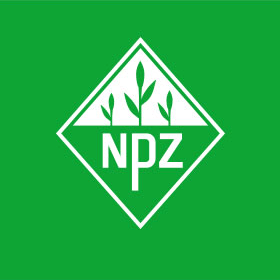Biotechnology
Further to classical breeding methods, biotechnology also plays an important role in practical plant breeding. DH-technology (production of double-haploid inbreed lines) as well as extensive disease testing for the identification of resistances are amongst the well-established procedures. In recent years, marker-assisted selection has also increased in importance. This portfolio of classical and modern breeding supports the development of high performance, healthy and high quality varieties.
DH-Technology
As they reliably pass on the desired characteristics to the next generation due to their near homozygous genome, inbreed lines form the basis for our breeding of rapeseedhybrids. In order to create an inbreed line via classical methods, rapeseed plants are exclusively pollinated with their own pollen (autogamy) for many generations. Each following generation gets a bit closer to homozygosis, until after seven generations and several years, an inbreed line is created.
Total homozygosis can be achieved much quicker by means of the DH-technology: In a microspore culture, new plants are generated from pollen. Being haploid, pollen of rapeseed has a single set of chromosomes. During regeneration, this set of chromosomes is doubled. The peculiarity of this method is that resulting plants do not have one maternal and one paternal set of chromosomes but – due to doubling the pollen chromosomes – a double haploid set of chromosomes. This allows for 100 percent homozygosis within one generation only.
For more than 25 years, NPZ is operating its own DH-laboratory, and in addition closely cooperates with Saaten-Union Biotec GmbH.
Marker-assisted selection
Some selection characteristics are not immediately apparent in the phenotype of a plant – that is, in its outer appearance. In a classical way, resistance against a disease for example can only be verified after the infection with the respective pathogen. By means of marker-assisted selection, the focus therefore is not on the phenotype of the plant but instead the genotype is analysed with the help of molecular markers at the DNA-level. As every individual cell carries the complete heritage information of the plant, a small leaf sample of the growing plant alone is enough to check whether it is carrying the desired gene. In this manner, a targeted combination of crossing partners based on their genetic characteristics can be performed and progeny quickly and effectively be selected with regard to their performance and resistance characteristics, without these even being phenotypic visible.
Today, due to its reliability and economy of time, marker-assisted selection is firmly established in conventional plant breeding. In this area, NPZ closely cooperated with NPZ Innovation GmbH which performs the analyses of markers and pathogen resistances by means of the latest examination techniques.

